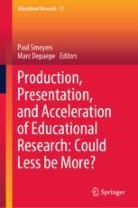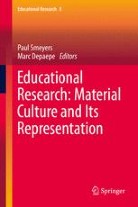
About this book series
Freedom of inquiry in educational research can no longer be taken for granted. Narrow definitions of what constitutes ‘scientific’ research, funding criteria that enforce particular research methods, and policy decision processes that ignore any research that is not narrowly utilitarian, in many countries, create a context that discourages scholarship of a more speculative, exploratory, or critical sort.
In this series, internationally leading scholars in philosophy and history of education engage in discourse that is sophisticated and nuanced for understanding contemporary debates. Thus social research, and therefore educational research, is again focused on the distinctive nature of what it studies: a social activity where questions of meaning and value must be addressed, and where interpretation and judgment play a crucial role.
This educational research takes into account the historical and cultural context and brings clarity to what actually constitutes science in this area. The timely issues that are addressed in this series bear witness to the belief that educational theory cannot help but go beyond a limited conception of empirical educational research to provide a real understanding of education as a human practice. They surpass the rather simple cause-and effect rhetoric and thus transgress the picture of performativity that currently keeps much of the talk about education captive. The authors are united in the belief that there is a place within the social sciences in general’, and within the discipline of education in particular, for ‘foundational’ approaches that enable the systematic study of educational practice from a discipline-orientated approach.
- Electronic ISSN
- 2543-0653
- Print ISSN
- 1878-9447
Book titles in this series
-

-
Educational Research: Ethics, Social Justice, and Funding Dynamics
- Editors:
-
- Paul Smeyers
- Marc Depaepe
- Copyright: 2018
Available Renditions
- Hard cover
- Soft cover
- eBook

-
Educational Research: Discourses of Change and Changes of Discourse
- Editors:
-
- Paul Smeyers
- Marc Depaepe
- Copyright: 2016
Available Renditions
- Hard cover
- Soft cover
- eBook

-
Educational Research: Material Culture and Its Representation
- Editors:
-
- Paul Smeyers
- Marc Depaepe
- Copyright: 2014
Available Renditions
- Hard cover
- Soft cover
- eBook

-
Educational Research: The Importance and Effects of Institutional Spaces
- Editors:
-
- Paul Smeyers
- Marc Depaepe
- Edwin Keiner
- Copyright: 2013
Available Renditions
- Hard cover
- Soft cover
- eBook

